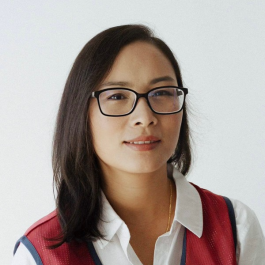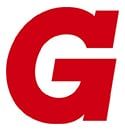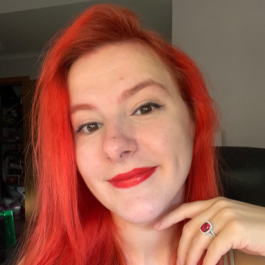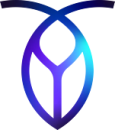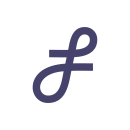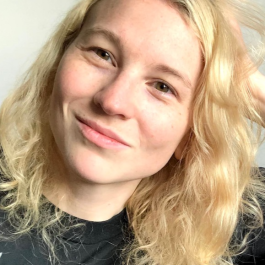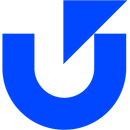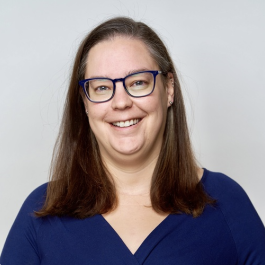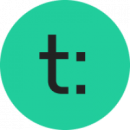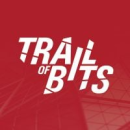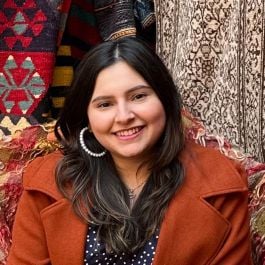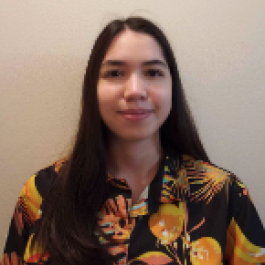A recent study by the Boston Consulting Group found that companies with above-average diversity scores reported 19 percent higher innovation revenues compared to those with below-average diversity scores.
In the world of technology, engineering teams are the foundation of innovation and development, and when those engineering teams are composed of individuals from different backgrounds, including gender diversity, new angles and perspectives with which to approach problems become available. This diversity of thought can spark creativity and result in breakthrough innovations that homogeneous teams might overlook.
Women often bring different problem-solving approaches and techniques, and this cognitive diversity contributes to the enhanced performance and innovation of their teams. By hiring and supporting women engineers, companies can harness this potential and elevate their problem-solving capabilities.
The underrepresentation of women in engineering is a longstanding issue. According to the Society of Women Engineers, women make up only 13 percent of the engineering workforce in the United States. This gender imbalance not only limits the potential talent pool but also perpetuates stereotypes and biases. Creating a supportive environment where women engineers can thrive and advance in their careers is crucial for retaining this talent.
Recruiting, hiring and supporting women engineers doesn’t just help women advance — the structures and culture send a powerful message about the company’s commitment to diversity and inclusion. This, in turn, fosters a more welcoming environment for all employees, regardless of gender.
As the engineering field continues to evolve, it is imperative for organizations to recognize the importance of diversity and actively work towards creating environments where women engineers can thrive. By doing so, they not only contribute to gender equality but also unlock the full potential of their engineering teams, driving innovation and achieving greater business success.
Built In heard from engineers at 18 companies about how they are thriving as women on diverse teams and how their companies continue to help them grow.
Lowe’s assists customers with remodeling, decorating, renovating and more through easy shopping in person, online or via their mobile app.
Describe your initial introduction to Lowe’s. What was the moment that made you feel like you found the right team?
I joined Lowe’s as a contractor initially. I must admit, before becoming an associate, I was hesitant to join the Lowe’s family because I had been a contractor for a long time and was not sure how I would feel about becoming an employee again.
However, in working as a contractor for Lowe’s, I came to appreciate the Lowe’s culture of making everyone feel included (even me, as a contractor), encouraging us to take ownership of our work and supporting us to keep learning and growing. I also met many people who were extremely passionate about their work, which is a testament to the great culture at Lowe’s.
From your perspective, how important is representation and diversity in an engineering team?
Representation is extremely important. A diverse team means that each person is able to bring a unique perspective to the table, which is much needed. This enables the team to build the best products for our business partners and stakeholders. A diverse team also expands each person to be more creative and innovative — to do things that haven’t been done before. This is possible because we get to learn about opinions and ideas that we haven’t heard before, which expands our own perspectives.
“A diverse team expands each person to be more creative and innovative.”
When it comes to gender equity in the workplace, what does Lowe’s get right where others have fallen short?
Lowe’s does a great job empowering women to be brave and speak up. To recognize the value that we, as women, bring to the table.
Lowe’s hosts an annual Women in Tech conference that encourages us to take ownership of our personal growth. We also have a business resource group dedicated to empowering women, which hosts lunch-and-learns, book study groups and more. At these events, various women in leadership have shared their personal career journeys and practical steps they took to get to where they are. I have learned so many golden nuggets, such as finding a mentor, taking ownership of my growth plan and building my network of allies.
Lowe’s does a great job in creating the space for us to connect and uplift one another.
Grainger is a B2B marketplace that sells maintenance, repair and operating supplies and services.
Describe your initial introduction to Grainger. What was the moment that made you feel like you found the right team?
After starting my career in academia and working my way up to being a tenured computer science professor, I decided to explore the possibility of returning to industry. A former coworker posted a job opening for an engineering manager at Grainger, and I reached out to discuss the position with her. I respected her engineering talents and her ethical ways of working, which, along with some research, led me to believe that Grainger valued its employees and had interesting technical questions on its horizon. I also felt that the position offered a substantial opportunity for technical growth while leveraging the skills I had developed in academia.
I don’t know if there was a specific moment where I felt that I had found the right team; rather, it’s been a series of ongoing moments of working with extremely talented and thoughtful team members that reaffirm that I am part of the right team.
From your perspective, how important is representation and diversity in an engineering team?
Representation and diversity are crucial to an engineering team. These traits bring a variety of perspectives when considering different engineering problems, support a culture of open-mindedness and help to reinforce multiple modes of communication. Grainger is helping to foster representation and diversity in engineering teams through different networking groups, recruitment pathways and sessions that facilitate open communication on these topics.
“Grainger is helping to foster representation and diversity in engineering teams through networking groups, recruitment pathways and sessions that facilitate open communication on these topics.”
When it comes to gender equity in the workplace, what does Grainger get right where others have fallen short?
I feel valued on my engineering team when team members are comfortable sharing their goals, concerns, excitement about future work or challenges while trusting me to provide a stable, supportive and secure team environment that has clear technical direction, so that they are able to navigate their career journey effectively and with ease.
SeatGeek is a mobile-focused ticket platform that enables fans to buy and sell tickets for sports, concert and theater events.
Describe your initial introduction to SeatGeek. What was the moment that made you feel like you found the right team?
SeatGeek reached out to me shortly after the company I was working at was acquired by a competitor, eroding the culture and driving talented employees elsewhere. I’m a lifelong Dallas Cowboys fan and love attending live events, so I was really excited at the opportunity to work in an industry I could identify with. I also identified with SeatGeek’s values immediately and saw those values demonstrated through each person I spoke to during the hiring process.
SeatGeek holds a high performance bar and is the right mix of small company feel but with great resources. We focus our time on things that matter, have a great deal of autonomy and influence and very little bureaucracy to get in the way. I was initially hired into our data science engineering department and was one of three women on a four-person engineering management team, which really made me feel like I could see myself in my peer group.
From your perspective, how important is representation and diversity in an engineering team?
I think it’s really important to see others like you succeeding at all levels, above and below. Most of us have no lack of experience being the only underrepresented gender or race on a team or in a meeting, and it’s so refreshing when that cycle is broken. The women at SeatGeek really lift each other up and support each other, not just through our Women at SeatGeek employee resource group, but in everyday actions. We also have a really strong mentorship program where we’re able to connect women at different stages in their careers to help navigate difficult situations.
“The women at SeatGeek really lift each other up and support each other.”
When it comes to gender equity in the workplace, what does SeatGeek get right where others have fallen short?
In my opinion, the biggest thing SeatGeek gets right is listening and being open to feedback. Recently, our Director of DEI conducted anonymous listening sessions where anyone interested could provide direct feedback to our senior leadership team. This format allowed us to be candid about any concerns we have or areas where we think SeatGeek can improve as we grow as a company. It’s really meaningful to know that our leadership wants to hear unfiltered employee input and plans to make positive changes as a result.
One thing that makes me feel valued on our engineering team is that my male coworkers have helped break the all-too-frequent pattern of a woman voicing an idea or opinion only to be ignored or dismissed, then shortly after a man says the same thing and gets recognition for it. This has happened to me a couple of times, but each time a male coworker has been very quick to jump in, give my idea visibility and make sure I received credit for it. The fact that others are conscious of this kind of bias makes me feel protected and seen, allowing me to speak up and know that my ideas will be heard.
Smartly is an AI-powered advertising technology company transforming ad experiences for brands and their consumers. Its comprehensive advertising platform seamlessly integrates the capabilities of media, creative and intelligence.
Describe your initial introduction to Smartly. What was the moment that made you feel like you found the right team?
Before joining Smartly, I worked at a small startup, but it soon became clear that things weren’t heading in the right direction. So, I began searching for new opportunities. I knew what I wanted: a role that combined tech and managing people, in a company with a lively and innovative culture building an interesting product. I enjoy solving big problems as part of a team, and I wanted a place that would allow me to do that.
Not much later, I came across an open position at Smartly where a former colleague of mine was working. I reached out to him for insights and quickly realized the position was worth pursuing — and here I am!
What truly amazed me was how welcomed I felt at Smartly from day one. I never once felt like an outsider or newcomer. The team accepted me with open arms, with everyone willing to sit down and answer my questions, whether they were about the coffee maker, the layout of the meeting rooms or complex product-related matters.
From your perspective, how important is representation and diversity in an engineering team?
Throughout my university studies and professional career, I have consistently been in male-dominated environments. Because of this, I prioritize ensuring that our recruiting, hiring and promotion processes are fair, and that our ways of working are flexible enough to support individuals from diverse backgrounds and personal situations. I firmly believe that diverse perspectives are essential for building an outstanding product.
At Smartly, our commitment to diversity is visible at all levels, beginning with our female CEO, Laura Desmond, and a leadership team predominantly composed of women. This commitment extends throughout the organization. One of our company values is “maximize learning,” which we uphold by continually reviewing our processes, policies and actions to ensure fairness, transparency and support for diversity.
“At Smartly, our commitment to diversity is visible at all levels, beginning with our female CEO, Laura Desmond, and a leadership team predominantly composed of women.”
When it comes to gender equity in the workplace, what does Smartly get right where others have fallen short?
At Smartly, we recognize that achieving equity is an ongoing process, not a one-time project. Continuous progress through diverse initiatives is essential. We’ve learned that meaningful change requires time and effort, and I love this!
We have employee resource groups, leadership ask-me-anything sessions, office events and discussions within various management teams, among other initiatives. I feel empowered to share my thoughts in any of these settings and be genuinely heard. Knowing that my input can lead to real change makes me feel like a valued member of the team.
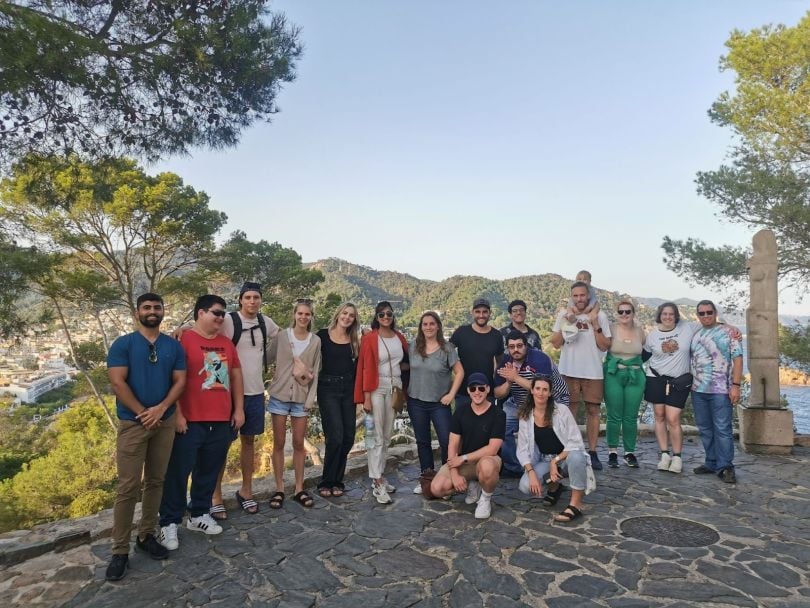
Founder of the “headless commerce” concept, commercetools offers SaaS products for e-commerce businesses, including digital storefronts and a signature platform that manages sales processes and transactions.
Describe your initial introduction to commercetools. What was the moment that made you feel like you found the right team?
I started working when I was 16, and I started university when I was 17. Growing up, I had various jobs from babysitter and dog walker to journalist and radio and TV presenter. Long term, I felt that journalism was not the path I saw myself on for the rest of my career.
Luckily, some friends convinced me to apply for a role at a gaming company. I aced all the interviews and got a role with the company. Since then, it’s been almost 18 years, and I’ve had the pleasure to meet a lot of talented and helpful people along the way. I started initially as a QA, then had various roles from project manager to head of PMO to my current position as head of engineering.
A few years ago, I stumbled upon a company called Frontastic, which was acquired by commercetools, and the rest is history. I’ve been with commercetools now for a little over two-and-a-half years, and I still remember the first interview and what made me choose this company over others. The hiring manager, who is still my manager to this day, switched up the interviews and showed me the product, how it looks and invited me to ask questions and propose suggestions. I really enjoyed the format of that session and it gave me the opportunity to see from the beginning what I’d be investing my energy into if I was to join the company, and it showed me how I could bring value to the team.
The most important factors in choosing the company at that time were the kindness, empathy, openness, transparency and the companywide mentality to help each other. It gave me a strong sense of purpose, unity and ambition while having fun and learning along the way. To me, these are essential to being happy and fulfilled in a role.
From your perspective, how important is representation and diversity in an engineering team?
It’s crucial to have a diverse team, be it engineering, product or any other department. We learn so much from each other, so imagine how much power and endless creative ideas you can have when you multiply that by a global team.
Currently in my engineering department, we have colleagues from over nine countries, and having such a culturally diverse team is a great way to learn something new and see a different solution to a problem. Not to mention, it makes working together more fun — just take our incredibly long and wide-ranging karaoke playlists for example.
“Having such a culturally diverse team is a great way to learn something new and see a different solution to a problem. Not to mention, it makes working together more fun.”
On top of that, I’m a member of the DEI committee here at commercetools, where we work on internal and external projects focused on fostering and growing a community of diversity, equality and inclusion.
When it comes to gender equity in the workplace, what does commercetools get right where others have fallen short?
When we are conducting interviews for our roles, we source a diverse panel of interviewers in order to ensure that we are minimizing any sort of unconscious bias toward the candidates. We are constantly working towards a more equitable and diverse workplace for all employees and the DEI committee I’m on is working on some exciting initiatives here.
Specifically for me, I have never felt weird for being a woman on the engineering team. Everyone has treated me with respect, listened to my opinions and taken the time to help me learn in a respectful way. I’ve always felt encouraged to speak up when I have a different opinion or want to propose a solution. For me, this is the foundation of a trusting and long-lasting working relationship with my colleagues and manager.
Cockroach Labs, creator of CockroachDB, offers a highly evolved, cloud-native, distributed SQL database, empowering global companies to build scalable, resilient mission-critical applications.
Describe your initial introduction to Cockroach Labs. What was the moment that made you feel like you found the right team?
I began my career working as an engineer in big tech for the first eight years. As I started looking for new opportunities towards the end of my previous job, I knew I wanted to specialize in software infrastructure and sought a small- to mid-sized company where I could have a greater impact. Cockroach Labs perfectly matched what I was looking for. During the interview process, I was impressed by the company’s culture and the strength of its engineering talent, making my decision to join them an easy one once I received the offer.
I initially joined Cockroach Labs as an engineer on the observability team. A year later, I transitioned to the role of engineering manager for one of the SQL teams, which is my current position. Key moments for me in both teams have been the opportunities to lead complex projects and collaborate with some of the smartest people I’ve met. Having been with Cockroach Labs for three years now, I continue to learn something new every day from my work and colleagues, which I absolutely love.
From your perspective, how important is representation and diversity in an engineering team?
Representation and diversity can truly be game-changing ingredients for success. In software engineering, creativity of thought and innovative solutions are essential for building successful products. A diverse mix of individuals and perspectives significantly broadens the scope of potential solutions, helping to create the right product for the audience.
Cockroach Labs values diversity and has made significant efforts to adopt a bias-free interview process, fostering a growing diverse workforce. I’ve witnessed the positive impact this has had on both engineering and leadership within the company. Diversity in leadership roles, in particular, creates a culture where individuals from all backgrounds can thrive and make meaningful contributions. This inclusive environment attracts top talent, enabling the company to build and deliver world-class products.
“Diversity in leadership roles, in particular, creates a culture where individuals from all backgrounds can thrive and make meaningful contributions.”
When it comes to gender equity in the workplace, what does Cockroach Labs get right where others have fallen short?
I believe one of the key success metrics for achieving gender equity in the workplace is ensuring equal representation in leadership roles. At Cockroach Labs, I’ve noticed an encouraging increase in women holding leadership positions. Continuing this trend and striving for gender equity at the executive level can significantly enhance the company’s value.
Feeling valued, for me, involves having the opportunity to contribute meaningfully to the company’s goals and positively impact individual team members’ careers. At Cockroach Labs, I’ve consistently been given opportunities to drive features that our customers love. Additionally, I find great satisfaction in mentoring my team members and supporting their professional growth.
Transforming the way individuals living with serious mental illness receive care, firsthand employs peer guides, social workers and clinicians to connect these individuals with medical and behavioral care as well as social benefits.
Describe your initial introduction to firsthand. What was the moment that made you feel like you found the right team?
I’m always wary whenever I join a new team as a woman, especially in a field as male-dominated as engineering. When I knew it was time to move on from my previous company, I reached out to a manager I had worked with before and trusted to cultivate an inclusive, positive team culture. That manager was now working at firsthand, where there was an opening for a software engineer.
Throughout the interview process I made a point to ask about team culture, but it wasn’t until I suggested certain process changes after the first few weeks — and the team took those suggestions seriously and as worthy of discussion — that I knew I was in the right place.
I love my team. I value their expertise, and they value mine. We challenge each other, but never forget to leave space to listen, and that’s the kind of culture I want to stand behind.
From your perspective, how important is representation and diversity in an engineering team?
Diversity in an engineering team is important for the same reason it’s important in any organization. Everyone brings with them a certain perspective, be it gender, race, sexuality or just their own personal story. A company that does not value those voices within their organization does not value those voices of the people outside their organization that they are purporting to serve.
The only way to solve a large problem is to see it from every perspective, and if an engineering team only has one perspective, they’ll never effectively see the right solution. I am extraordinarily grateful to work somewhere where I see myself and others represented in my coworkers. It’s not perfect, but I have the confidence to voice my opinions and concerns because I know that I am not alone-there are a wide variety of people contributing their own perspectives that will eventually lead us to the right solution.
“The only way to solve a large problem is to see it from every perspective.”
When it comes to gender equity in the workplace, what does firsthand get right where others have fallen short?
It always comes back to trust. Trust that I am capable, trust that what I have to say is worth listening to, trust that I am the engineer I say I am. Unlike other places I’ve worked at, there’s been a concerted effort to hire for gender equity. To believe in the value of our perspective and to trust in our ability to do the work. It’s an unfortunately rare privilege to have that experience in an engineering job, and it’s what I believe is the foundation of any truly effective team.
Domino Data Lab helps data science teams and organizations accelerate their machine learning initiatives and improve collaboration and reproducibility.
Describe your initial introduction to Domino Data Lab. What was the moment that made you feel like you found the right team?
My initial introduction to Domino was through an interest in their product and the critical problems it is designed to solve in the booming AI industry. I found the platform’s commitment to configurability especially notable and was intrigued to learn about the craftsmanship underpinning an offering capable of deploying at scale across cloud providers. The distributions team is responsible for developing solutions that constitute the foundation of Domino’s pluggable nature, and it was this mandate that made me feel as though I had arrived upon the most exciting opportunity as an engineer interested in solving complex problems that come with managing the lifecycle of software — and the infrastructure underpinning it — in both SaaS cloud offerings and self-hosted environments.
From your perspective, how important is representation and diversity in an engineering team?
Representation and diversity in engineering are critical for widening the range of experiences that ultimately inform how effectively, and creatively, a team is able to solve nuanced, challenging problems.
While I am now a staff engineer who has worked for many years in tech, my original background is rather unconventional. My thesis at Harvard was not in computer science but an original novel followed by an MFA in fiction at NYU. Odd as it may sound, my study and passion for writing still informs how I think about and write software. I believe that a team that values voices both from different representational backgrounds and with unique journeys in their careers is more receptive to innovation that reimagines the status quo. To that end, I have had the opportunity to make a lasting impact in just a year working at Domino.
“My thesis at Harvard was not in computer science but an original novel followed by an MFA in fiction at NYU. Odd as it may sound, my study and passion for writing still informs how I think about and write software.”
When it comes to gender equity in the workplace, what does Domino Data Labs get right where others have fallen short?
I think the principal thing Domino gets right as far as gender equity is concerned is its sincerity — all the initiatives in the world are merely rhetorical exercises if the commitment and respect isn’t there. The value I feel on my engineering team is not despite being a woman, nor is it because I am one — my teammates have only ever treated me with genuine respect on the merits, and personally that is one of the things I value most about working at Domino.
Upside’s mobile app enables consumers to claim cash-back offers at participating retailers, enabling businesses to increase their profits without altering their operations.
Describe your initial introduction to Upside. What was the moment that made you feel like you found the right team?
I was lucky enough to know another woman who had already joined Upside when I applied. Having someone I trusted tell me her experience definitely calmed some nerves that were further soothed as I went through the interview process and found a diverse group of people who genuinely cared about each other. What made me know I had found the right place for me was when I joined the team and the genuine care that people here have for each other didn’t fade, but was instead extended to me, as well.
From your perspective, how important is representation and diversity in an engineering team?
I have been able to work with a diverse group of engineers at Upside throughout my tenure. Representation and diversity not only give us needed alternate perspectives as we build products but also are critical to long-term success. You need voices that are different from your own to highlight other viewpoints that would otherwise be missed. Throughout my time here, those voices have always been given equal space and weight as we work together to build something really special.
“You need voices that are different from your own to highlight other viewpoints that would otherwise be missed. Throughout my time here, those voices have always been given equal space and weight.”
When it comes to gender equity in the workplace, what does Upside get right where others have fallen short?
The biggest thing that makes me feel valued on the engineering team at Upside is how I’ve been treated as a technical leader in the company. You hear horror stories about women in leadership positions or who are subject matter experts and are not listened to or whose male counterparts are asked questions that they would be better suited to answer. When joining a startup, that was certainly a fear of mine, but it couldn’t be further from the case. As I built context and expertise in Upside’s systems, people have not shown any hesitation in recognizing my contributions or knowledge.
Whatnot leverages live streaming to connect buyers and sellers in the collectibles marketplace.
Describe your initial introduction to Whatnot. What was the moment that made you feel like you found the right team?
My journey to Whatnot began after a fulfilling seven-year career at Pinterest, where I advanced from an individual contributor engineer to an engineering manager. With two years of management experience, I was eager for a new challenge — one that would allow me to build a team and culture from scratch in a dynamic startup environment. Whatnot presented the perfect opportunity. The company was filled with smart, motivated individuals who I felt like I could grow with and learn from to cultivate a high-performing team.
From your perspective, how important is representation and diversity in an engineering team?
Representation and diversity are crucial for the success of an engineering team. At Whatnot, I’ve witnessed firsthand how a diverse team can enhance performance and foster a positive, inclusive culture. As my team grew, we invested as much as we could in building a gender-balanced team which not only improved our execution but also made our work environment more enjoyable and cohesive. This strong sense of camaraderie is essential for both retention and the overall health of the team.
“As my team grew, we invested as much as we could in building a gender- balanced team which not only improved our execution but also made our work environment more enjoyable and cohesive.”
When it comes to gender equity in the workplace, what does Whatnot get right where others have fallen short?
Whatnot actively recruits from schools known for their diverse student populations, in terms of gender and also background diversity. This intentional approach ensures a wide array of perspectives and experiences within our team. I find that any diversity efforts require actual implementation of concrete strategies, which I’ve seen Whatnot regularly practice in hiring strategy meetings, check-ins and planning.
BlueConic is a leading customer data platform that makes first-party data from disparate systems accessible to marketers for enhanced customer engagement across channels.
Describe your initial introduction to BlueConic. What was the moment that made you feel like you found the right team?
From a young age, I was fascinated by technology and dreamed of having my own company. This led me to pursue a degree in computer science. I started my career in a startup, where I learned about creating and selling products, gaining valuable knowledge in sales and marketing. In 2020, I moved to the Netherlands, seeking new opportunities in tech. After refreshing my tech skills, I aimed to join a company with a product in the marketing sector.
During the interview process at BlueConic, I was impressed by the focus on problem-solving and professional growth. The company’s story, the founders’ vision and their commitment to diversity really stood out to me. When I started at BlueConic, I immediately felt welcomed and supported. The onboarding was well-structured, and my team was always ready to help. I was assigned to an exciting project that allowed me to both apply and expand my skills.
Reflecting on my four years here, I am proud of my growth and the diverse projects I’ve worked on. One of my goals is to have my own company one day, and having Cory as our CEO has been a big inspiration in pursuing this dream. I look forward to contributing to BlueConic’s continued success.
From your perspective, how important is representation and diversity in an engineering team?
Representation and diversity in an engineering team are incredibly important. Initially, I found it challenging to work with people from different backgrounds because we had varied ideas and approaches to solving problems. However, after a few months, I realized that these differences actually helped us grow and improve.
At BlueConic, we work in an international team on a world-class customer data platform. This diversity enables us to develop more inclusive and comprehensive solutions, as it brings in a wide range of perspectives and ideas. BlueConic stands out in how it recruits, hires and supports women in engineering. The company actively seeks to create a balanced workforce by encouraging female candidates to apply for technical roles and ensuring a fair hiring process.
When it comes to gender equity in the workplace, what does BlueConic get right where others have fallen short?
At BlueConic, gender equity is more than a policy; it’s a fundamental part of our culture. One key aspect that sets BlueConic apart is the proactive effort to create a balanced and supportive environment. This includes offering flexible work arrangements, fostering a transparent promotion process and maintaining open channels for feedback and dialogue. These practices ensure that everyone, regardless of gender, has the opportunity to thrive and advance.
“Offering flexible work arrangements, fostering a transparent promotion process and maintaining open channels for feedback and dialogue ensure that everyone, regardless of gender, has the opportunity to thrive and advance.”
The one thing that makes me feel most valued on my engineering team is the genuine respect for diverse perspectives. Our team consists of individuals with different strengths and personalities, and this diversity is our greatest asset. I am a result-oriented person, and I find that my drive and focus are complemented by my colleagues’ creativity, analytical skills and collaborative spirit. This blend of characters creates a dynamic and effective team where everyone’s contributions are valued, allowing me to feel truly supported and empowered in my role.
Garner Health is a healthtech startup with two core offerings: Garner, a benefit program that uses data science and incentive accounts to help employees find doctors in their communities; and Garner DataPro, a provider recommendation platform.
Describe your initial introduction to Garner Health. What was the moment that made you feel like you found the right team?
My journey into the world of engineering began in college, where I discovered my passion for solving complex problems through technology. After that, I pursued postgraduate studies wanting to go into research but realized that I really enjoyed creating new products with technology, which made me pivot into product development.
All through my career, I always felt a pull towards the dynamic and innovative environment of startups. I worked in fintech startups before joining Garner Health. I met the head of engineering through my network when the company was at a seed stage. We had an in-depth conversation about the vision of the company and the challenges they want to tackle, which resonated deeply with me. The moment I knew I had found the right team was during my initial interview process. Since we were at the seed stage then, I talked to everyone at the company and what stuck out to me was the genuine interest they showed in my ideas and how they valued my perspective. It was also very clear that they were passionate about the mission and genuinely wanted to change the healthcare industry.
From your perspective, how important is representation and diversity in an engineering team?
Representation and diversity are crucial in any engineering team because they bring a variety of perspectives that drive innovation and problem-solving. Diverse teams are better equipped to understand and address the needs of a broad user base. At Garner, we actively seek to build a diverse team by focusing on fostering a culture where all voices are heard. This is evident in our brainstorming sessions, where everyone, regardless of their role or background, is encouraged to contribute. We have a diverse mix of engineers from different genders, ethnicities and experiences, which enriches our discussions and leads to more creative and effective solutions.
When it comes to gender equity in the workplace, what does Garner Health get right where others have fallen short?
One of the key things Garner gets right about gender equity is creating an environment where everyone feels empowered to take on leadership roles and make meaningful contributions. This is achieved through clear policies on equal opportunities, regular training on unconscious bias and a supportive culture that champions work-life balance and flexible working arrangements.
“One of the key things Garner gets right about gender equity is creating an environment where everyone feels empowered to take on leadership roles and make meaningful contributions.”
What makes me feel particularly valued on my engineering team is the level of respect and trust I receive from my colleagues. My ideas and contributions are always taken seriously, and I am given the freedom to lead projects and initiatives. This trust not only boosts my confidence but also motivates me to strive for excellence and inspire other female engineers to pursue their passions in this field.
Teachable is dedicated to helping creators and independent business owners turn their expertise into profit. The company’s no-code platform enables individuals to develop and sell online courses, coaching services and digital downloads.
Describe your initial introduction to Teachable. What was the moment that made you feel like you found the right team?
I had been working at a small startup for a few years where I was a senior engineer but also the most junior person on the team. I was also the only female engineer. I had wonderful experiences there but wanted to experience a new team and a bigger company, so I was passively applying for positions that checked all my boxes.
I was contacted by Teachable’s recruiting team about an open position and had a great, open and honest conversation about what I had in mind. I had done many initial screening calls with other companies where the details about the hiring sequence were vague or my questions about diversity and inclusion stats were deflected. Not only did Teachable have a very organized process, they had all the answers ready for me and gender representation stats that blew other companies out of the water. What really sealed the deal was when I moved to the technical portions of the interview process and actually had female engineers on my interview team — something that had never happened to me previously in my career.
From your perspective, how important is representation and diversity in an engineering team?
Throughout my career, I’ve been part of various teams, each differing in their commitment to and focus on diversity — some excelling more than others. I never realized how often I thought of my gender at work until I came to Teachable and suddenly I didn’t anymore. I honestly was taken aback by how much it added to my satisfaction with my position even though it was part of the draw during the recruitment process.
“I never realized how often I thought of my gender at work until I came to Teachable and suddenly I didn’t anymore.”
I think of representation and diversity like I do other indicators of team health. Healthy teams do better work over the long term, and evaluating diversity, equity, inclusion and implementation on teams should be a standard opportunity that leaders leverage to increase the performance of their teams.
In my experience, the real flow of a team comes when you hire well, foster a feedback-driven environment where those good hires can help each other improve rapidly, and everyone feels safe to take the risks they need to take to grow in their careers. Downplaying the role that good representation plays in that cycle for your employees is leaving productivity on the table.
When it comes to gender equity in the workplace, what does Teachable get right where others have fallen short?
Teachable chose to make an investment in building an equitable culture, pushed through fatigue and now has the benefit of a positive feedback loop, where the representation we have is, in turn, attracting more applicants from diverse backgrounds. There’s a strong commitment to eliminating bias in our hiring practices, and our hiring team spends extra time to do outreach to potential applicants of a wide variety of backgrounds.
Day to day, I feel we have a lot less reason to discuss cultural improvements needed around gender biases or manage situations where gender bias plays a role because there are very few situations where female employees are “others” in a group. Times where I’ve felt microaggressions in past jobs — like in architecture discussions and pairing — either don’t happen because I’m actually doing them with other female employees or are easy to work out because I have access to female engineering managers for help.
GameChanger is an app that empowers youth sports organizations to live stream scores, video and communications to its community.
Describe your initial introduction to GameChanger. What was the moment that made you feel like you found the right team?
After earning my master’s degree, I discovered GameChanger by DICK’S Sporting Goods and was truly captivated by its mission to enhance youth sports experiences through technology. Joining this team has given me the opportunity to play a critical role in developing groundbreaking features like live streaming, a new capability that has made it easier for families near and far to connect, and has led to a 30 percent increase in active teams on our app. This work aligned perfectly with my goal to make a meaningful impact using technology.
The standout experience here was being part of a cohesive team where everyone’s contributions led to profound improvements in user experiences. Each team I joined felt like the right fit, enabling me to effectively enhance how our technology connects and serves coaches, families and fans. GameChanger has supported me in exploring my expertise beyond the workplace. Encouraged by this support, I applied for and won the Sports Business Journal’s Rising Leader award, which was a testament to my growth and GameChanger’s dedication to nurturing talent. This was a significant highlight in my career, affirming that I had found the right company in GameChanger.
From your perspective, how important is representation and diversity in an engineering team?
In my opinion, representation and diversity are crucial in engineering teams because they bring different perspectives and skills, which is essential for creating innovative and user-friendly solutions. At GameChanger, inclusivity is foundational to who we are and enhances our ability to meet diverse user needs. Our team, comprising individuals from varied backgrounds, brings unique insights that tailor features to different demographics, enhancing the family-centric experience. For example, in developing live streaming, diverse familial experiences influenced the design of a more intuitive UI.
Our collaborative environment ensures everyone’s voice is valued. We discuss potential projects together, allowing each member to influence our roadmap. This inclusive process ensures everyone contributes to the final decision. Such discussions lead to user-centric product development, like our feature reminding users when their free trial is ending. All of this showcases our commitment to teamwork and that all voices are heard and valued.
When it comes to gender equity in the workplace, what does GameChanger get right where others have fallen short?
The GameChanger hiring process focuses on skills, potential and alignment with our team’s values rather than gender, bringing on board talented individuals who advance our mission.
Our commitment to gender equity is embedded in our daily operations, where everyone, regardless of gender, has equal opportunities to contribute, lead and grow. This approach makes me feel valued. We aim to create an environment where talent and hard work are the criteria for advancement, as evidenced by our senior leadership team, where five of seven members are women. This leadership balance is the natural outcome of promoting the most talented individuals based on their contributions and vision.
“Our senior leadership team, where five of seven members are women, is the natural outcome of promoting the most talented individuals based on their contributions and vision.”
In my experience, being a woman engineer at GC has never hindered my ability to contribute equally. I’ve never faced pushback or felt neglected; instead, I’ve been fully integrated, contributing as significantly as other individuals on the team. This inclusive culture at GameChanger values everyone’s contributions equally and sees diverse perspectives as a strength, enhancing our approach to innovation and development.
Trail of Bits’ products are designed to help protect the world’s most targeted organizations by reducing risk and fortifying code through blockchain-secure code review, cryptography, security vulnerability remediation and open-source ecosystem security.
Describe your initial introduction to Trail of Bits. What was the moment that made you feel like you found the right team?
An interview process involves not just the team vetting the candidate, but also the candidate deciding if they want to spend their working life with the team. I understood my interviewers to be a pretty representative sample of the folks I’d work with at Trail and to represent how the company wanted to present its culture. I felt I could easily have a friendly and respectful working relationship with everybody I encountered in the interview process.
From your perspective, how important is representation and diversity in an engineering team?
A team composed of just one kind of person — in the same age group with similar culture of origin and class and background, likes and dislikes, gender identity and so on — will only be able to build things and provide services tailored for people who are like them. They’ll have blind spots with regard to the wants and needs of people who are less like them.
A team composed of many different kinds of people, on the other hand, has a huge advantage: fewer blind spots. But they need to have better explicit communication skills, and as a result, may make fewer mistaken assumptions about the work and each other, since there’s less assumption of shared context.
The Trail team is remote. We have folks of different genders and backgrounds. Some of us are older than is typical in the U.S. tech industry, and some of us are younger. Some of us have prior experience in other industries. We also have pretty decent mandatory code-of-conduct and anti-harassment training yearly. What primarily matters is if you can get your work done while being a pleasant person to work with and respecting your teammates, not so much how your brain is packaged.
“What primarily matters is if you can get your work done while being a pleasant person to work with and respecting your teammates, not so much how your brain is packaged.”
When it comes to gender equity in the workplace, what does Trail of Bits get right where others have fallen short?
Most folks I’ve worked with at Trail make a default assumption of everyone’s competency and understand that everyone contributes to the degree of their experience and capacity. Everyone is expected to have good judgment and to be able to think for themselves while respecting the work and decisions of other folks. There are also a ton of opportunities and room for mentorship and for folks at every level to grow from others’ experience.
In my experience, we don’t have the kind of culture where employees who are more junior get the boring tasks, nor the kind of culture where an employee with no experience in a particular task is thrown into it without guidance.
How we handle the difference in time zones, schedules and cultural expectations is also a surprisingly big advantage. We track work by the hour, but it doesn’t matter when exactly you work so long as you get your work done and hit 40 hours a week. Overtime is also discouraged, since some contracts or employees’ locales do not allow it.
I feel valued when I am respected as another person on the team who ships things, has a depth of experience and also has a life outside work.
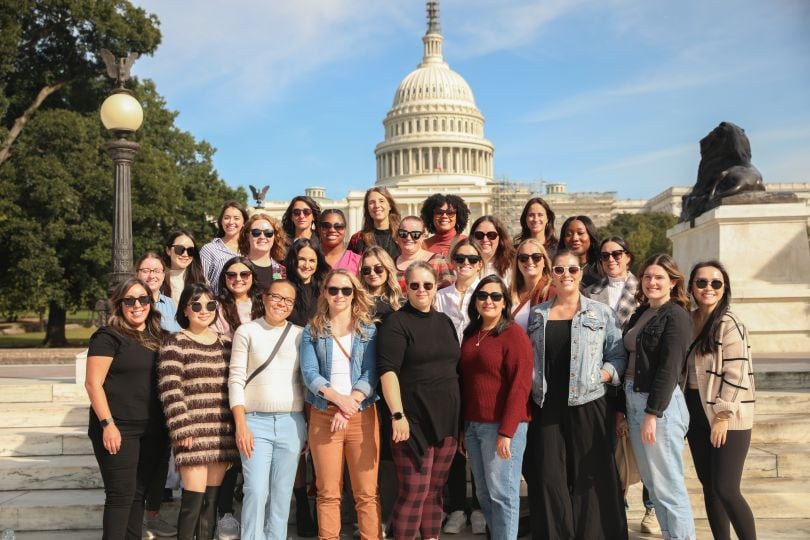
Osano is an all-in-one data privacy platform that helps organizations build, manage and scale their privacy programs.
Describe your initial introduction to Osano. What was the moment that made you feel like you found the right team?
I have always been a problem solver, which naturally led me to engineering. Initially, I pursued mechanical engineering, but various college courses piqued my interest in software engineering. After graduation, my first job was at a well-established company where I introduced a new testing framework, building it from the ground up. I learned immensely from my first job, thanks to my lead and mentor.
Wanting to expand my horizons, I moved to a startup and fell in love with the dynamic environment. I was able to provide significant value and had the freedom to innovate. However, as the company grew, I felt stagnant and out of sync with its evolving values.
That’s when I found Osano. Osano provided a perfect blend of what I was seeking: a shared vision and values, a team of inspiring engineers who continuously push me to grow and the startup culture I had come to love. Here, I feel I can truly thrive and continue my journey of learning and innovation.
From your perspective, how important is representation and diversity in an engineering team?
Representation and diversity are incredibly important in an engineering team. Diverse teams bring a mix of perspectives, experiences and ideas, which lead to more innovative solutions and better problem-solving. When people from different backgrounds work together, they can challenge each other’s assumptions, reduce blind spots and encourage more creative thinking.
At Osano, we truly value diversity and inclusion. One example of this is our companywide meetings every Monday. Every week, we learn about different aspects of the company, such as: our ideal customer profiles and how our sales team uses the MEDDPICC methodology, the evolving privacy space and our competitive analysis. We then break into smaller breakout groups to discuss each topic, ask questions and share our opinions, then we come back to the main group to share questions with leadership or the Osanian presenting. This setup allows everyone to voice their thoughts and ensures that diverse perspectives are heard and valued.
When it comes to gender equity in the workplace, what does Osano get right where others have fallen short?
While we’re focused on bringing more women to engineering, I’ve never felt different from my male colleagues. Osano excels in gender equity by creating an inclusive environment where everyone’s impact is recognized and valued. A key aspect is our commitment to mentorship and professional development, ensuring women have the same resources and support as their male counterparts, both in engineering and across the company.
“Our commitment to mentorship and professional development ensures women have the same resources and support as their male counterparts.”
An example of this is Wosano, our ERG for women, which provides a safe and fun space for connection and discussion on a variety of topics, such as: sharing a new book, financial planning tips or Taylor Swift. By fostering a sense of community and belonging, Wosano helps to create an inclusive culture where women feel empowered and supported in their careers.
I feel valued because of Osano’s emphasis on collaboration and open communication. Colleagues are ready to lend a hand, share knowledge, provide feedback and create a nurturing environment for growth. Meetings and one-on-ones keep communication open, ensuring concerns and suggestions are promptly addressed. My ideas and feedback are always welcomed and taken seriously, making my experience at Osano very fulfilling.
Piaggio Fast Forward was founded in 2015 by the Piaggio Group — the manufacturer behind the Vespa scooter — to develop mobility products, such as cargo-carrying robots.
Describe your initial introduction to Piaggio Fast Forward. What was the moment that made you feel like you found the right team?
I felt like I had found the right team after I had been with PFF for a couple of weeks and became involved in various design reviews within the mechanical engineering team. My opinions were valued from a manufacturing and feasibility standpoint and my CAD modeling skills stood out as an additional asset to the team. I quickly found myself more involved in various projects at PFF, where I continued to learn new skills and develop as an engineer.
Those first few weeks soon turned into three years at the company to where I am now the manager of the team I loved working with.
From your perspective, how important is representation and diversity in an engineering team?
Having diversity in an engineering team is important for finding creative solutions to problems. Every person I have worked with brings new ideas to the table and lessons learned from their experiences. I see within my company the openness to share best practices from past projects and understanding what can and cannot be applied to the problem at hand.
Representation plays a similar important role. Where I stand as a manager makes me a role model for new hires as well as other female engineers who want to understand how their roles can grow at my company.
When it comes to gender equity in the workplace, what does Piaggio Fast Forward get right where others have fallen short?
I feel valued by my team when we meet together for a design review and leave with a very clear list of actionable items plus a planned check-in date for deliverables. Our ability to collaborate, have meaningful discussions with differing opinions and a path going forward not only shows the value of everyone as an individual contributor and stakeholder in that meeting but I believe it is also a mark of a good engineering team — one that comes up with solutions collaboratively that align with the company’s goals. The openness to outside ideas and perspectives is something my company does right to better gender equity in the workplace and it shows when ownership for a creative solution is celebrated.
“The openness to outside ideas and perspectives is something PFF does right to better gender equity in the workplace, and it shows when ownership for a creative solution is celebrated.”
OneView Commerce's retail-as-a-service platform empowers retailers to deliver commerce experiences that matter and build loyalty to their brand.
Describe your initial introduction to OneView Commerce. What was the moment that made you feel like you found the right team?
My journey with OneView Commerce began after completing both a bachelor’s and a master’s degree in computer science, followed by gaining experience in medium and larger companies within the retail and logistics sectors over 10 years. At OneView, I started as a principal software engineer and later was promoted to engineering manager.
From the outset, I felt I had found the right company, thanks to OneView’s supportive culture and the collaborative atmosphere that permeates the organization. I knew I had found the right team when I was able to express my thoughts and feel listened to, knowing I have an impact on the product. Our team is focused on delivering high-quality code and fostering mutual growth in both technical skills and soft skills alike.
From your perspective, how important is representation and diversity in an engineering team?
Representation and diversity in an engineering team are crucial for fostering innovation and gaining diverse perspectives. At our company, we prioritize this by actively creating an inclusive environment where every team member from various cultural backgrounds feels respected and valued. We believe diverse teams lead to better problem-solving and creativity, ultimately enhancing our ability to understand and meet the needs of our global customer base.
When it comes to gender equity in the workplace, what does OneView Commerce get right where others have fallen short?
When it comes to gender equity, OneView Commerce stands out by fostering a supportive environment where everyone, especially in our all-women team, feels respected and valued. During my studies and previous experience, most of my colleagues were male engineers, which makes this inclusive environment particularly meaningful.
“During my studies and previous experience, most of my colleagues were male engineers, which makes OneView Commerce’s inclusive environment particularly meaningful.”
Personally, what makes me feel valued on my engineering team is the recognition of my contributions and the opportunity to have a meaningful impact. Our culture of collaboration ensures that everyone’s skills and perspectives are valued, creating a motivating environment where we can innovate and grow together.



